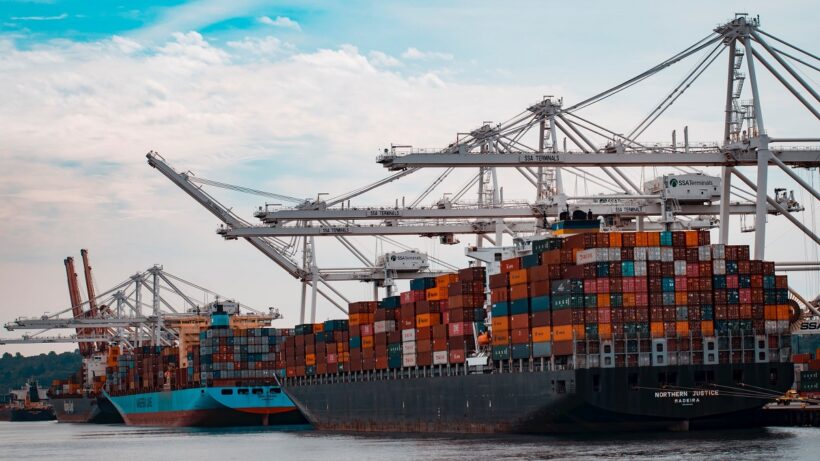Disclaimer: This post reflects solely the opinion of the authors and should not be taken to represent the general views of IPPR’s management/ editorial team or those of fellow authors
Background
Have you noticed that prices of your energy bills going up? Have you struggled to find cooking oil in supermarkets? What about fuel prices when you go to the petrol pump? Moreover, there are signs of a global food security crisis.
There is a global inflation crisis happening right now due to both the Russian invasion of Ukraine and the continuing impact of the Covid-19 pandemic. The Pandemic has impacted in two major ways: the rapid increase in demand affecting global supply chains and China’s continuing pursuit of Zero-Covid. We first look at how the Russian invasion of Ukraine impact inflation and then look at the continuing impact of the Covid-19 pandemic.
The Russian invasion of Ukraine
In late-February 2022, Russian President Vladimir Putin started his invasion of Ukraine under the guise of a special military operation to denazify and demilitarise Ukraine. The invasion triggered subsequent condemnation from the West due to the resulting humanitarian crises. As a result, the West imposed sanctions against the Russian government and Russian entities that propel the invasion which includes a proposal to eliminate all energy imports from Russia. Sanctions do create consequences against those who impose them; United States President Joe Biden admitted the impact of sanctions on energy supplies. Sanctions have continued to divide the European Union (EU) over Russian energy phase-out plans due to overdue reliance on Russian oil and gas. There were exports of 44 billion Euros worth of fossil fuels from Russia to the EU during the first two months of Russia’s invasion. Russian invasion and subsequent sanctions against Russia have created potential impact on energy supplies which allows inflation and high market volatility.
Figure 1 and 2: Russian oil and gas pipeline from Gazprom (Source: Fortune) and protest in Berlin, Germany calling for phase-out of Russia-imported gas (Source: Bloomberg)
Economic sanctions additionally create humanitarian impact. The Lancet medical journal explained how sanctions worsen humanitarian crises akin to a “weapons of mass destruction” due to shortfall in provision of medical supplies and public health infrastructure which will impact the ordinary population. Moreover, sanctions create greater impact on the ordinary population instead of the targeted governing elites. Such impact includes greater human rights violations by sanctioned governments to repress dissent from economic hardships. This contradicts the aims of sanctions for compellence (forcing adversaries to do something) and deterrence (forcing adversaries to stop committing their actions).
Besides the continuing repression and human rights violations by Russia, the war in Ukraine has impacted global food security. Before the war, both Ukraine and Russia were significant exporters of wheat and sunflower oil. Consequences from the war include difficulties to produce wheat, grain and sunflower alongside further overstressing supply chains. Moreover, there have been allegations that Russian troops have looted and stolen Ukrainian grain to send and trade them abroad. Sunflower oil shortages led to supermarkets in the United Kingdom rationing cooking oils. Further compounding cooking oil shortages is Indonesia’s suspension of palm oil exports to ensure its domestic supply. These food ingredient shortages are breeding ground for inflation and food insecurity.
A significant financial impact of sanctions is higher inflation. A case study of sanctions against Iran found that there was an increase in inflation following heavy sanctions, as well as greater instability in market exchange rates. This case is similar to the ongoing sanctions against Russia due to the issue of energy supply and energy prices. Yet there are additional underlying factors that are causing the inflation crisis, particularly in Europe. The continuing energy crunch caused by the Covid-19 pandemic-related supply chain crisis and events leading up to Russia’s invasion of Ukraine.
Supply chain crisis and Covid-19
Figure 3: Sign displaying delayed deliveries caused by UK-wide shortages impacting stock availability of food in a University of Nottingham café (Personal photograph, 8 May 2022)
The global supply chain crisis continues to linger in global trade as a result of the Covid-19 pandemic and has been worsened by Russian invasion of Ukraine. Global supply chain is a complex network that crosses multiple continents crucial for international trade. The Covid-19 pandemic managed to expose the fragility of it, given the restrictions on manufacturing due to infection prevention protocols leading to layoffs and production slowdown. Sudden spike of demand on particular goods and services such as personal protective equipment, durable goods such as furniture and kitchen appliances, took place. As the world recovers from the pandemic thanks to vaccinations, demand for consumer goods spiked to pre-pandemic levels and the supply chain could not cope with such pressure thanks to difficulties to hire or re-hire employees in the shipping and delivery services sector. In addition to hiring difficulties, the pandemic put into spotlight the just-in-time production.
The just-in-time production method is often to blame as it aims to minimise stockpiles yet it reduces supply chain resilience. Japanese car manufacturer Toyota developed the just-in-time production method, sending parts to factories right according to demand and eliminate the need for stockpiling in warehouses. Such a production method became globally popular given its effort to reduce waste and ability to reduce production defects. The Covid-19 pandemic exposed the shortfalls of just-in-time production which therefore allowed shortages to happen thanks to the reduced stockpiles in warehouses, coupled with difficulties in the delivery and shipping sectors. The supply chain crisis following Covid-19 has propelled inflation and the Russian invasion of Ukraine is making it worse. Moreover, China’s continued pursuit of Zero-Covid – a strategy aiming to eliminate daily Covid-19 infections to zero – compounds the burden of inflation.
Figure 4: Lockdown checkpoint in Shanghai, China (Source: Japan Times)
China’s continued pursuit and intensification of Zero-Covid extremely contrasts countries that started or have continued to reopen their economies following pandemic-induced lockdowns. Other countries initially following the Zero-Covid strategy, such as Australia, New Zealand, Singapore and recently Taiwan have been able to reverse these policies due to high levels of vaccination, despite the emergence of the Omicron Variant. This allows countries to tolerate high levels of Covid-19 infections with low levels of hospitalisations, critical care demand and deaths. Underlying issues in China’s Covid-19 vaccines, lower levels of elderly people vaccinated, vaccine nationalism, and desire to show its moral superiority against “inept” Western Covid responses gives China no choice but to continue with it’s Zero-Covid strategy, as demonstrated by the most recent lockdown in Shanghai. Shutdown of manufacturing concerns global supply chain due to Shanghai being China’s main logistics port and a getaway to international commerce. Lockdown-related domestic supplies crisis angered Shanghai residents, who then voiced cries of food shortages.
Conclusion
The global supply chain issue is affecting international trade, energy and food security. Russia’s invasion of Ukraine triggered international backlash through sanctions which has led to difficulties to find alternative energy sources other than fossil fuel imports from Russia. Such a problem of overreliance had been overdue, making Western economies vulnerable to consequences of sanctions they made themselves. Sanctions impacted the ordinary Russian population as well thanks to human rights violations by Russia’s regime. The war further exacerbated inflation and supply chain problems, the latter of which had emerged following Covid-19 pandemic lockdowns. Yet further compounding inflation and supply chain crisis are China’s pursuit of Zero-Covid as the world’s economies are increasingly reopening their economies from lockdowns. Covid-19 pandemic-related supply chain issues came from shifting demand of specific goods and/or services during lockdowns and restrictions on manufacturing to maintain health and safety protocols. Therefore, the compounding pandemic-induced supply chain crisis and Russia’s invasion of Ukraine have triggered the inflation crisis as these factors put pressure on production, manufacturing and supplies.
By Ivan Korompis
I am a UCL MSc International Public Policy student, passionate on discussing issues in international relations. Nottingham Politics and International Relations graduate.







